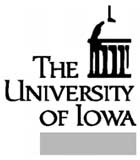Welcome to Lab!
Truth emerges more readily from error than from confusion.-Francis Bacon
Intermediate and Advanced Laboratory are, at their core, about learning how to learn physics by doing experiments. Up to this point in your education as a physicist most of the experiments that you have seen and/or performed have been illustrations. In these experiments you are looking to demonstrate a known effect and you "tweak the knobs" until you get the expected answer and then you stop. This is NOT experimental science, it is a lecture demonstraton. In this course, getting the expected answer is of no value - giving the honest answer along with a good (justified) estimate of what the errors are is the goal. In every experiment you will be given some kind of theory to start with. However, in every case, you will find (if you do careful work) that the theory is limited in what it describes and that the experiment exhibits other physics that is outside of the theory. Your goal in experimental work is not only to find out how good the theory is but also to understand how good the apparatus is and to figure out what other things (potentially new and interesting) are going on in the experiment.
What is Error?
There are two categories of experimental error in science; systematic and random. Neither category corrresponds to a mistake (which you could call a third kind of error), but rather they refer to limits in the precision/accuracy, or interpretation, of experimental results.
The analysis of errors is central to an experimental science. Research experiments are performed in order to gain knowledge about physics and any statement about what has been learned in an experiment has to be qualified by an acknolegement of the limitations and assumptions that have been relied upon in the process of performing the experiment. If you don't do error analysis, then you can't justify the statement that you have learned anything from your experiment. So error analysis is at the heart of "scientific epistemology".
Random Error
Random error is, as the name suggests, an uncertainty which behaves according to the rules of a random process. Because every experiment is embedded in an enviroment, there inevitably are a large number of uncontrolled variables that may have a slight effect on the measurements. It turns out that the combined effect of a large number of small influences can be successfully modeled using statistical methods. So random errors are analyzed using statistical methods. These errors are never fully removed, but they can in many cases be strongly mitigated.
Systematic Error
A systematic error is often a more subtle problem. In experimental work you always have some idea of what you are measuring and how you are measuring it. Your ideas, however, may be incorrect or incomplete. In fact, it is safe to say that they will always be incomplete. One of the principle tasks of the experimental physicist is to see just how well the ideas you have about what you are measuring and how you are measuring it work. This is accomplished by comparing things that (according to your ideas) should be equal. For example you typically have a theoretical prediction and a measurement and you want to see if they agree. To make a judgement about how well they agree, you invariably need to do the analysis of the random errors first. If the discrepancy between theory and experiment cannot be credibly explained in terms of the random errors (or in terms of the limited precision of the theory), then one has to consider that something is "systematically in error". This means that you have a wrong, or missing idea in your representation of either what you are measuring or of how you are measuring it. It is in the analysis of systematic errors that you have the strongest interaction between theory and experiment
